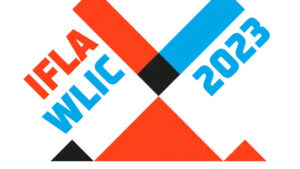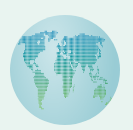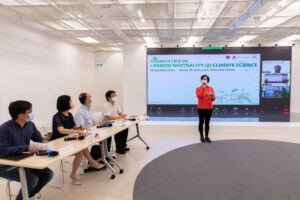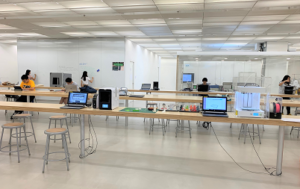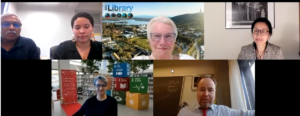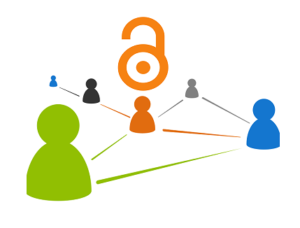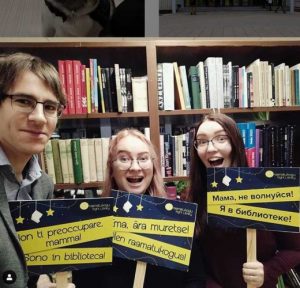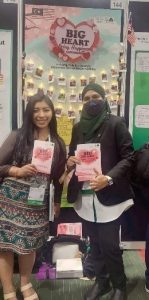Author: Cécile Quach, Library Curator, Gallica Studio Project Manager, BnF
As part of the four hundredth anniversary of Molière’s birth in 2022, LITTE_BOT is a theatrical chatbot which embodies Dom Juan from Molière.
If you come to Paris, why not drop by the recently reopened historic site Richelieu of the French National Library (Bibliothèque nationale de France, or BnF) and sit down in the BOT°PHONE to talk with Dom Juan thanks to the chatbot LITTE_BOT? It is freely accessible in the Roux-Spitz Hall until 15 January 2023.
The LITTE_BOT project questions the technological mediation of chatbots in order to engage in dialogue with a literary work and an author.
More specifically, LITTE_BOT is a research-creation project which aims at renewing the experience of reading and stage performance by conversing with a character from Molière, an emblematic figure of French literature whose works and characters are widely known, through teaching and theatrical performances.
LITTE_BOT transposes a character into a chatbot through dramaturgical strategies thanks to an artificial intelligence trained on Molière’s corpus available on Gallica, the digital library of BnF and its partners. The project was supported by Gallica Studio (now closed), a program from BnF that encourages the use of Gallica’s public domain documents in a creative and collaborative spirit. The aim is to ultimately encourage the emergence of new uses of online common heritage and related tools. In this case, the project revisits heritage through contemporary creation and experiments with the possibilities opened up by artificial intelligence. It also aims at demystifying AI by documenting the creation process.
This project was born in 2018 from the artistic research of Rocio Berenguer, a playwright and choreographer familiar with digital technologies. Rocio Berenguer has found in the works digitized by BnF a new source of inspiration allowing her to cross her own experience as an artist of today with this literary heritage.
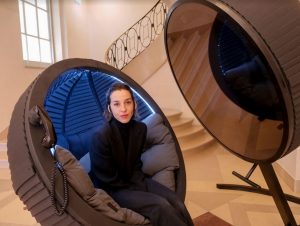
Rocio Berenguer sitting in the BOT°PHONE
This complex project was made possible by the grant and the framework provided by the ArTec University Research School in the context of a call for projects from 2019 through 2022. A consortium of research centers, cultural institutions and art schools, ArTec aims to promote and articulate research projects in the fields of the arts, technology, digital technology, human mediation and creation. The projects articulate in an original and inventive way the methodologies of research-creation, research-action, research-development, in a perspective of inclusive and shared excellence. The call for projects was designed to facilitate collaboration between at least two institutions in the consortium. In this case, it was between the BnF and the Paris 8 University, around issues of creation as a research, as well as technologies and human mediation.
This project mobilized skills and resources specific to each partner which needed to be pooled through this partnership in the form of a research-creation project. The partnership also made it possible to explore cross-cutting issues.
For BnF, the added value in experimenting with a chatbot as a voice mediation interface for a cultural institution lies in the investigation of the benefits of this new type of mediation, especially for the inclusion of people who experience difficulties in reading, but also to help demystify artificial intelligence by documenting the choices and compromises made when the chatbot was created.
From a research perspective, the question is to know how to create and interpret the characteristics that determine the uniqueness of a literary character in the Man/Machine dialogue without having previously detected and employed these characteristics for the deep learning of an artificial intelligence.
In light of these issues and objectives, the challenges we faced were:
● Speaking 17th century French and understanding today’s French
● Building up a new database from a corpus of 17th century French theatre
● Processing feeling and emotion (AI impersonating a seductive Don Juan)
● Make a non-closed expert system
● Create a reproducible model for other literary works
The research part of the project was undertaken by Anna Pappa (LIASD Laboratory) and Samuel Szoniecky (Paragraphe Laboratory) from the Paris 8 University. Engineering the chatbot involved:
● AI Deep Learning for chatbot
● Creating a 17th century theatrical corpus ~100k lines from:
○ Molière’s corpus digitized by Gallica and in TEI produced by the OBVIL in the framework of a previous joint research project between the BnF and the Sorbonne University. Eventually, we also had to include the Dom Juan from Dorimond and Villiers, as well as the French 17th century theatre.
● Training the bot with Seq2Seq model
● Articulating two models:
○ Free conversation using AI model
○ Scripting a guided conversation with the visitor
● Corpus enrichment through additional visitors/bot interactions
The artistic part of the project was handled by playwright Rocio Berenguer:
● Scripting the interaction
● Graphic interface: morphing the visitor’s face (Hugo Arcier)
● Designing the booth BOT°PHONE that contains the chatbot (with Arthur Geslin)
Rocio Berenguer directed the chatbot as if it were an actor and created a playful and poetic artificial intelligence device. She has scripted the interaction: the conversation takes place according to a scenario that combines the open chatbot and the closed chatbot. The database has been indexed by Rocio according to each stage of the scenario.
As for the staging of the device, it aims to allow a playful and poetic experience. A comfortable, noise-isolated booth has been built to talk on the phone with Dom Juan. The visitor faces a mirror display where his face is scanned and mixed with other fictional faces. Taking up the idea of the philosopher Jean Baudrillard, who assumes that seduction is the theft of the other person’s desire, the chatbot will gradually steal the desire of the person in front of it and… go so far as to steal its face.
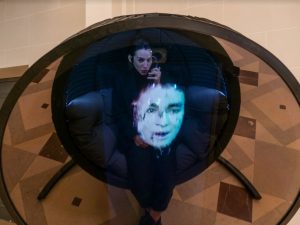
Morphing in progress while talking with LITTE_BOT ((c) L’ADN/Romane Mugnier)
The project also includes a historical and linguistic approach to Molière’s theatre thanks to the collaboration of Georges Forestier, professor of French literature at the Sorbonne. He advised to make the chatbot embody a character from Molière, and to choose Dom Juan as a character eager to meet new people.
It also resonates with the collections of the BnF’s Performing Arts Department headed by Joël Huthwohl and with the BnF’s Molière 2022 exhibition, an exhibition produced in partnership with the Comédie-Française.

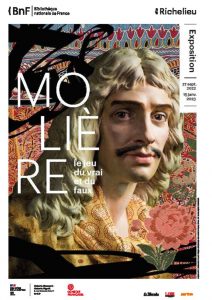
In the end, the fact of wanting to train an AI model from a database created from scratch, and of having chosen the character of Dom Juan (which made it harder to achieve a critical mass of data) has made it difficult to meet the deadline of the exhibition. So when B12 Consulting, a Belgian company specialized in automatic language processing, offered Rocio Berenguer to create a chatbot pro bono, they were quite welcome. We gave them the corpora and the database already built. Hugo Dendievel used the GPT-2 model (already pre-trained) and pondered it with Molière’s corpus, and the Dom Juan dataset. This model was combined with a similarity analysis model based on a list of questions and answers handled by Rocio Berenguer.
However, the chatbot resulting from the research part is still going on, in order to create a reproducible model for other literary works, in partnership with Tristan Cazenave, professor at Paris Dauphine University (LAMSADE laboratory). It is now based on GPT-3 model and has been replicated for Molière’s theatre in prose and rhyme, and for Bertolt Brecht’s theatre. You may chat with it online here.
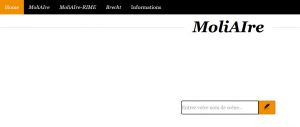
Screenshot of the chatbot from Paris 8 and Paris Dauphine
For both the exhibition chatbot and this online chatbot, the aim was to get as close as possible to the illusion of a conversation with an identifiable theatre character. The evaluation of these chatbots is done both according to the technical metrics of chatbot design and according to the linguistic and literary criteria of the chosen playwright.
But it is still a computer program, even if it is an AI, and the user realises this at some point. We accept this imperfection, and this is part of the educational aspect of the project. As Rocio Berenguer puts it, this gap also makes us aware of the power of human capacities and of what real human interaction is, which also has its hazards and misunderstandings.
Cécile Quach, library curator, Gallica Studio project manager cecile.quach@bnf.fr
Acknowledgements
This research-creation project was carried out by Rocio Berenguer, the Performing Arts Department of the BnF and the LIASD and Paragraphe laboratories of the University of Paris 8 within the framework of Gallica Studio, thanks to the support of the ArTec University Research School, a State grant managed by the National Research Agency under the Programme of Future Investments (ANR-17-EURE-008) The booth was supported by the Université Paris Lumières. The public version of the chatbot was developed with B12 Consulting.
Further readings
(In French, apart from the first reference)
● Litte_Bot : a theatrical dialogue system using Seq2Seq model by A/Prof Anna Pappa, Université Paris 8-France, AI4LAM Community Call,19 April 2022, Content Generative Models and GLAM
● Press release of the exhibition Molière, le jeu du vrai et du faux
● The interview of the actors of the project, with a view to educating the general public about AI: https://bnf.hypotheses.org/12976. A QR code on the cartel of the work refers to it.
● Page of the BOT°PHONE on the BnF website
● Interviews of Rocio Berenguer in the ADN webzine and L’Eclaireur de la Fnac.
● BnF’s Ai roadmap
● Ai projects at the BnF
Team
Artistic conception of the work BOT°PHONE
Rocio Berenguer, design, artistic direction and dramaturgy
Hugo Arcier, visual creation 3D avatar
Arthur Geslin, co-design of the installation
Léopold Frey, sound creation, chatbot development and integration
Étienne Champagne, UE4 development & Face Tracking
Gesture, technical design and construction of the installation
Scientific design of the chatbot LITTE_BOT
Anna Pappa, Associate Professor in Computer Science – University of Paris 8
Samuel Szoniecky, Associate Professor in Information and Communication Sciences – University of Paris 8
With the collaboration of Georges Forestier, Professor of French Literature, Sorbonne University
Michel Herquet, Partner and Hugo Dendievel, Analyst Developer at B12 Consulting: Collaboration for the creation of the public version of the chatbot.
BnF Coordination team
Cécile Quach, Library Curator, Gallica Studio project manager
Joël Huthwohl, Director of the Performing Arts Department
Arnaud Laborderie, Gallica Project Manager, also Associate Professor at Paris 8 University, Paragraphe laboratory
Peter Stirling, Research Project Officer
